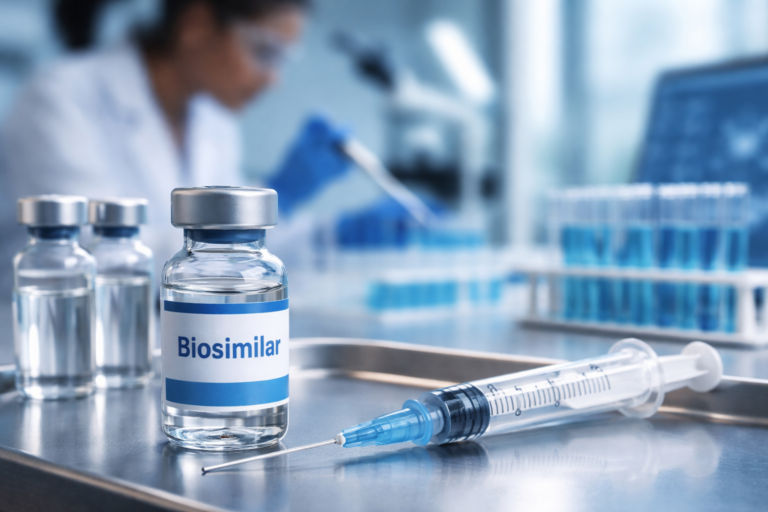
Coya Therapeutics Advances Treg-Derived Exosome Program
Coya Therapeutics, Inc. (“Coya” or the “Company”), a clinical-stage biotechnology company focused on developing biologics that enhance regulatory T cell (Treg) function, has provided a comprehensive update on its investigational regulatory T cell-derived exosome (Treg exosome) platform. This pioneering approach is aimed at treating systemic and neurodegenerative diseases driven by chronic inflammation, which is a hallmark of several serious autoimmune and neurodegenerative conditions.
Understanding Chronic Inflammation and the Role of Treg Exosomes
Sustained inflammatory responses resulting from dysfunctional immune regulation are central to the pathogenesis of many debilitating diseases. Neurodegenerative disorders, including Alzheimer’s disease, Parkinson’s disease, and amyotrophic lateral sclerosis (ALS), have all been linked to chronic neuroinflammation. Similarly, systemic autoimmune diseases such as rheumatoid arthritis and multiple sclerosis involve aberrant immune responses that exacerbate tissue damage. Coya’s investigational Treg exosome platform offers a promising approach to addressing these conditions by leveraging the natural immunosuppressive properties of Tregs to restore immune balance.
Advancing a First-in-Class Disease-Modifying Therapy
Fred Grossman, DO, Coya’s Chief Medical Officer, emphasized the significance of the Treg exosome program in the company’s broader therapeutic strategy. “Our Treg-focused pipeline continues its advancement with the goal of manufacturing an allogeneic (off-the-shelf) modality that has the potential to be a first-in-class disease-modifying treatment for devastating neurodegenerative diseases of high unmet need. This approach complements and adds to our pipeline of therapies, including COYA-302, that aim to enhance Tregs and suppress neuroinflammation to slow disease progression in several neurodegenerative diseases.”
Arun Swaminathan, CEO of Coya, reiterated the strategic value of this program: “We believe Treg exosomes are complementary to and will provide accretive value to our biologics platform. Thanks to our partnership with Dr. Stanley Appel and the Johnson Center, the program is being advanced without impact to our cash runway.”
Mechanism of Action and Scientific Rationale
Coya Therapeutics’s preclinical studies have demonstrated that ex vivo expanded Treg exosomes express key immunoregulatory markers and effectively suppress pro-inflammatory responses in vitro. The potential advantages of Treg exosomes over traditional Treg cell therapies include:
- Targeted Immune Modulation: Treg exosomes are highly suppressive on pro-inflammatory macrophages and responder T cells, reducing the inflammatory cascade that contributes to disease progression.
- Increased Stability and Resistance: Unlike Tregs, exosomes are not susceptible to conversion into a non-suppressive phenotype within deleterious inflammatory environments, ensuring a more stable therapeutic effect.
- Efficient Cellular Uptake: Treg exosomes are readily taken up by myeloid cells, which play a crucial role in disease progression, making them particularly effective in modulating chronic inflammation.

These properties make Treg exosomes a promising candidate for treating neurodegenerative diseases, where neuroinflammation is a key driver of neuronal loss.
Preclinical Evidence Supporting Treg Exosomes
The potential of Treg exosomes has been validated in preclinical models. In a well-established mouse model of neurodegeneration, intranasal administration of Treg exosomes yielded several beneficial outcomes:
- Slowed Disease Progression: Mice receiving Treg exosomes exhibited a marked reduction in disease progression compared to controls.
- Increased Survival Rates: Treatment with Treg exosomes led to a significant increase in survival duration in preclinical models.
- CNS Inflammation Modulation: Treg exosome therapy was associated with a decrease in pro-inflammatory cytokines and increased anti-inflammatory markers in the central nervous system (CNS).
These findings provide a strong foundation for moving forward with clinical development.
Manufacturing and Scalability of Treg Exosomes
In Q1 2025, Coya Therapeutics successfully manufactured initial engineering batches of Treg exosomes using expanded Tregs from healthy donors. The company is working in collaboration with the Johnson Center to further optimize and scale up production. Key objectives include:
- Characterization of Treg Exosome Attributes: Ensuring consistency in molecular composition and biological activity.
- Reproducibility of the Manufacturing Process: Conducting additional runs to verify process reliability and batch-to-batch consistency.
- GMP Manufacturing Preparation: Transitioning to Good Manufacturing Practice (GMP) standards to produce larger-scale clinical batches.
GMP manufacturing is expected to commence before the end of 2025, paving the way for clinical trials.
Clinical Development and Future Outlook
Following the successful completion of GMP manufacturing, Coya aims to initiate clinical studies to evaluate the safety and efficacy of Treg exosomes in humans. Potential areas of investigation include:
- Neurodegenerative Diseases: ALS, Alzheimer’s, and Parkinson’s disease, where inflammation plays a key role in disease pathology.
- Autoimmune Disorders: Conditions such as multiple sclerosis and rheumatoid arthritis, which involve dysregulated immune responses.
- Systemic Inflammatory Conditions: Exploring broader applications in chronic inflammatory diseases.
The Broader Impact of Treg Exosome Therapy
If successful, Treg exosomes could represent a paradigm shift in the treatment of chronic inflammatory and neurodegenerative diseases. By offering an off-the-shelf, cell-free alternative to Treg therapy, Coya aims to overcome many of the challenges associated with traditional cell-based treatments, such as manufacturing complexity and potential safety concerns.





